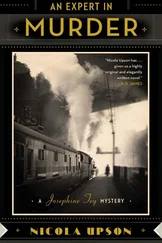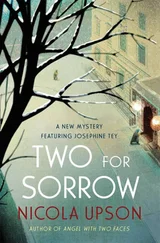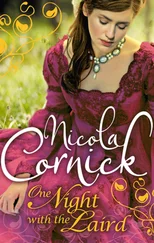It was always assumed that he would help his father run the business when he was old enough, and he had been happy with that – happy, and a little nervous at first. There was a lot to learn, but he enjoyed the camaraderie of working alongside his father and the satisfaction of doing a job which really mattered. Only once had he been truly afraid, and that was early on, when he had just turned thirteen. It was winter, the evening before a funeral, and he and his father had gone to a farmhouse half a mile or so out of the village on the Penzance road to make the final preparations. They were given a warm welcome – Jago Snipe knew everyone and was well respected in the community – and the dead man’s widow, glad of the company, had insisted on making tea. As she busied herself with the kettle, his father handed him a screwdriver and nodded towards the door to the stairs. ‘You start to screw him down, lad,’ he whispered, ‘I’ll be up in a bit.’ Christopher took the screwdriver, desperate not to let his father down, and made his way upstairs, looking more confident than he felt. His courage deserted him at the third stair from the top and he sank down onto the step, staring straight ahead at the room where the coffin lay, wanting to go on but reluctant to leave behind the comforting sound of voices from the kitchen. He sat there for half an hour or more, until he could barely make out the door in the darkness, and all he could think of was the first dead body he had ever seen, carried easily over Jago’s strong shoulders, pale hands tapping the backs of his legs as he walked. When his father came up to look for him, he realised immediately that he had asked too much of his son and gave him an apologetic hug. They went in together to shut the light out on the corpse for the final time, but the incident made such a strong impression on Christopher that he could still remember every detail of that room – the Bible under the dead man’s chin, the spectacles and pipe placed carefully under the coffin lining, the clock stopped at five minutes past three.
After that, his father was more careful about what he asked Christopher to do, ever mindful that he was still a young boy. Even now, he was not allowed to help with bodies which came in from the sea or after violent deaths – his father said there would be plenty of time for him to witness that sort of sadness when he was older, and always sent him on some sort of convenient errand when such a job was on. He was grateful for his father’s consideration, and knew how much he was loved, but today, thinking about what he had to do after the funeral, he was back on that third stair from the top – uncertain of what to say, scared of letting his father down, and wanting more than anything to run away. This time, he couldn’t count on reassurance and a hug – not when his father heard about Loveday, and certainly not if he ever found out that Harry Pinching’s death was Christopher’s fault.
Chapter Four
The sun sank lower over the trees, taking with it all the blue from the lake and transforming the surface of the water into a metallic palette of silvers and blacks. A heron took off from the tangled mass of shrubs on the opposite bank, its slate-grey plumage in perfect keeping with the rest of the landscape and, from her window at the Lodge, Josephine watched its languid progress across the water, enjoying the familiar, rhythmic beat of its wings until it reached the other side of the lake and disappeared into the impenetrable shadow of the trees. In the distance, a delicate curl of smoke from one of the farm cottages was the only indication of human activity. Except for the occasional drumming of a woodpecker from the trees at the back of the house, all was quiet and still.
The estate lodge was a handsome building of pale-grey stone, dating back, Josephine guessed, to the mid-nineteenth century and conceived in Victorian Tudor style. There was a small, sheltered garden at the side – well stocked with foxgloves, rose bushes and gnarled old apple trees – and she found it hard to imagine a more idyllic location. She had yet to see the main house, of course, but it seemed to her that in exchanging the worries of the estate for this peaceful retreat, the Penrose family had got the more desirable end of the bargain. She tried to imagine Archie here, but found it hard to separate him from their familiar London circles. The demands of Scotland Yard and the glamour of a West End first night were worlds apart, but he seemed equally at home in either and moved between them with an effortlessness which she admired, and occasionally envied; perhaps there was another, more rooted side to him which she was still to discover. He had always spoken lovingly of his parents, but never in much detail, although it may well have been her own tendency to compartmentalise areas of her life that discouraged Archie from sharing everything about himself. Certainly, looking around now at the images of a family home, stamped deeper with every generation, she realised how little she knew of his background, despite their long friendship.
She could scarcely believe that she had known Archie for twenty years: so much had happened since that first meeting, a year into the war, when her lover, Jack, had invited his closest friend – a fellow medical student from Cambridge – home to Inverness for the month. The three of them had spent much of that summer together, walking barefoot for miles over the soft, yielding moss of the flats by the loch, then climbing heathery slopes which recent burning had left too rough to cross unshod. As time went on, she had come to value Archie’s humour and sense of adventure as highly as Jack did; he, in turn, fell immediately in love with Scotland and – she knew, although it had never been spoken aloud – with her. They shared a passion for history and romance – in later years, it would be Archie who reawakened her fascination with theatre – and, while tramping over the white sands at Nairn or collapsing, exhausted, on the flat top of Tomnahurich, dark with cedar and with legend, they would entertain Jack for hours with richly inventive tales of Scotland’s heroes, both real and imaginary. For all of them, the month had been tinged with sadness: when it ended, both Jack and Archie were off to war, swapping the heroics of the past for supposed glories of their own. Jack’s death at the Somme just a few months later had created an awkwardness between Josephine and Archie from which they were only just recovering, and she looked forward to seeing him now, free of the strain that had hung over them for so long.
On the table in the kitchen, as if to echo her optimism, she found a box of Miel chocolates with a Bond Street stamp, a bottle of Burgundy, and a note from Archie propped up against a jug of bluebells. She read it and smiled: making herself at home wouldn’t be difficult, although the combination of beauty and indulgence boded ill for her work ethic. She had written her first mystery novel in a fortnight to meet an impossible deadline, but that was six years ago and the effort had nearly killed her, sitting up until three every morning and falling half dead into bed. She had vowed never to do it again. This book was bound to take longer, but if she could leave Cornwall with a satisfactory plot and a few thousand words, the hardest part would be over. Personally, she felt she had too logical a mind to write a real shocker, but the last novel had sold well enough to make her publisher eager for another, and she enjoyed the demands of a medium which was as disciplined as any sonnet. In any case, it would be nice to see Inspector Alan Grant again, she thought, selecting a chocolate from the box. She had grown rather fond of him in the fortnight they had spent together, not least because she had borrowed heavily from Archie to create him, and it was about time he had another murder to get his teeth into; an unbeaten case record was hardly an achievement if she only gave him an outing every decade.
Читать дальше












